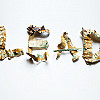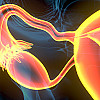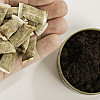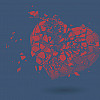Recent Blog Articles

Lead poisoning: What parents should know and do

How does waiting on prostate cancer treatment affect survival?

Does running cause arthritis?

Is alcohol and weight loss surgery a risky combination?

Preventing ovarian cancer: Should women consider removing fallopian tubes?

Healthier planet, healthier people

Is snuff really safer than smoking?

Will miscarriage care remain available?

Considering collagen drinks and supplements?

Does less TV time lower your risk for dementia?
Broken Jaw
What Is It?
When a bone breaks or cracks, the injury is called a fracture. Jaw fractures are the third most common type of facial fractures, after fractures of the nose and cheekbone. They can be caused by many different types of impacts to the lower face, including:
- An accidental fall, especially in children who are playing and in adults who faint
- Hitting the dashboard during a car accident
- A fall from a motorcycle or bicycle
- A fall or collision during contact sports
- A punch to the jaw
The jaw bone is also called the mandible. It is a long bone that includes your chin and angles up toward your ear on both sides of your face. On each side, the end of the jawbone is rounded like a ball. This "ball," called the condyle, is the part of the jaw joint right in front of your ear. It lets you open and close your mouth. The jaw joint is also called the temporomandibular joint or TMJ.
To continue reading this article, you must log in.
Subscribe to Harvard Health Online for immediate access to health news and information from Harvard Medical School.
- Research health conditions
- Check your symptoms
- Prepare for a doctor's visit or test
- Find the best treatments and procedures for you
- Explore options for better nutrition and exercise
I'd like to receive access to Harvard Health Online for only $4.99 a month.
Sign Me UpAlready a member? Login ».
Disclaimer:
As a service to our readers, Harvard Health Publishing provides access to our library of archived content. Please note the date of last review or update on all articles.
No content on this site, regardless of date, should ever be used as a substitute for direct medical advice from your doctor or other qualified clinician.
Free Healthbeat Signup
Get the latest in health news delivered to your inbox!
